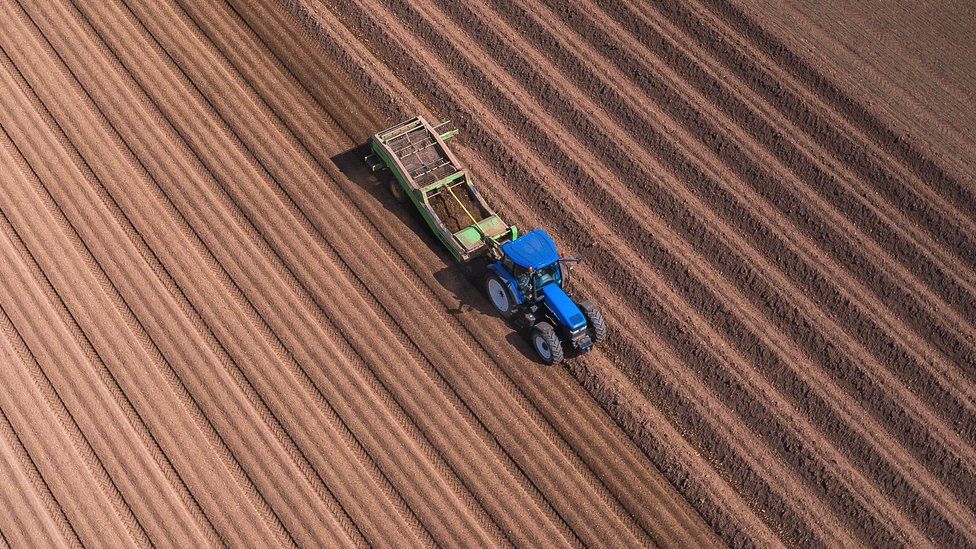BBC News 13 June 2022 - by Helen Briggs
The government's own adviser on food says only about half of his recommendations have been taken on.
The long-waited plan to transform England's food system will be revealed later today, with the government promising to put farmers and food security at the heart of their reforms.
The proposals have been criticised for not including a tax on salt and sugar.
Restaurateur Henry Dimbleby, the architect of a landmark review of the food system, said the policy document was not detailed enough to be called a strategy.
He told the BBC: "They've now implemented more than 50% of what I recommended, but it hasn't been done with one vision across the whole system."
Under the plans, farmers are set to produce more home-grown food to help guard against future economic shocks.
Announcing the blueprint, Mr Johnson said it set out "how we will back farmers, boost British industry and help protect people against the impacts of future economic shocks by safeguarding our food security".
The PM added: "Harnessing new technologies and innovation, we will grow and eat more of our own food - unlocking jobs across the country and growing the economy, which in turn will ultimately help to reduce pressure on prices."
The report is expected to recommend investment in automated farming methods to improve productivity.
The strategy also includes plans to:
- Consult on an ambition for 50% of public sector food spend to go on food produced locally or certified to higher standards
- Publish a framework for land use in England next year
Mr Dimbleby made a raft of recommendations around farming, environmental issues and health.
He called for the taxing of salt and sugar in processed foods and a move towards more sustainable food production, including protecting the budget for farm payments until at least 2029.
He said his salt and sugar tax proposal would be responded to by the government at a later date, adding that Health Secretary Sajid Javid should "be bold and brave in a difficult political context and act to break that junk food cycle".
He also expressed hope people can "get away from this narrative of personal responsibility and education, which is important, but it isn't going to get us out of the hole we're in".
The final version of the report has not yet been published in full, but a leaked draft that emerged in recent days has been described as "half baked" and "watered down" by campaigners.
Joan Edwards, director of policy and public affairs at conservation charity, The Wildlife Trusts, said the landmark review had recommended a greater emphasis on protecting nature and the climate in farming, but she feared the government was "watering down" its approach.
"We don't have a food security issue now, but unless we deal with the climate and nature crises we will have a food security issue in 10 or 15 years' time," she said.
The president of the National Farmers' Union, Minette Batters, broadly welcomed the commitment to food production and food security, but said this was dependent on the policies put in place to deliver it.
"It's vital that food stays affordable and vital that social policies are in place for access to high quality food," she told BBC News.
Sue Davies of consumer group, Which?, said the strategy lacked ambition and many of the recommendations made by the government's independent adviser on how the food system can be healthier for people and the planet, had been "watered down, ignored or put off for further consultation".
The independent National Food Strategy was commissioned in 2019 by the then environment secretary, Michael Gove, and has produced two reports.


